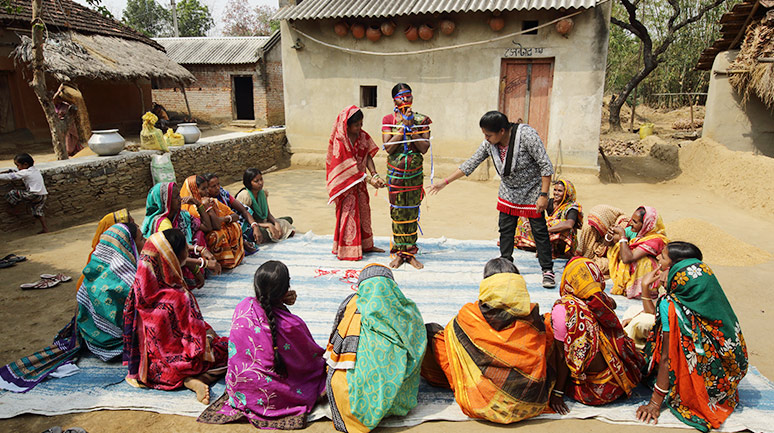
Taboos, superstitions, lack of awareness, lack of infrastructure, shame and embarrassment about menstruation are barriers to the confidence, self-esteem and dignity of girls and women, affecting their well-being and health as a consequence.
“AT THE AGE OF 13, I ATTAINED MENARCHE, AND WAS totally unaware about it. I was shocked to see the blood and was too fearful to share about it with anyone in the home. I cried and kept myself isolated. For four to five days, I just used to change the blood-stained underwear. Even my neighbour didn’t say anything except for informing me about my soiled skirt when she saw it, and I was clueless about what to do with it. Then, the next month I came to know that I needed to use cloth during this period when, somehow, I dared to share it with my mother. I felt very ashamed and bad about myself.”
I was very disturbed by this story. I cannot forget the innocence in her voice and her moist eyes when Anusuiya Jain said these words, holding her two-year-old daughter in her arms. I was horrified by the way we (family, society) behave and act when the subject of menstruation comes up. As if it is something to be ashamed of. Rural areas face a challenge when it comes to human health and well-being. And of all the sections of society, women are the most vulnerable and their health needs, by and large, remain unaddressed.
Rural areas face a challenge when it comes to human health and well-being. And of all the sections of society, women are the most vulnerable and their health needs, by and large, remain unaddressed

